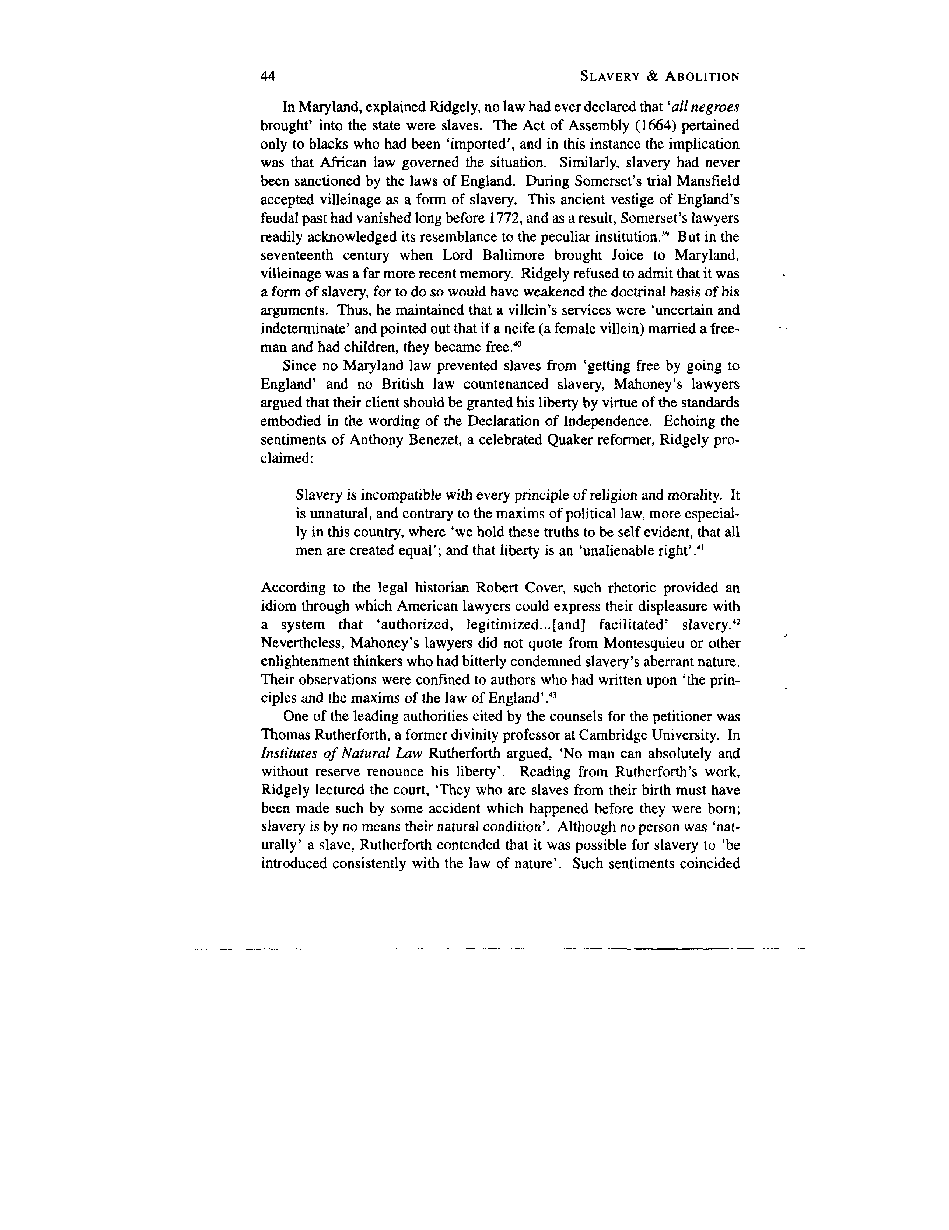|
44 SLAVERY & ABOLITION
In Maryland, explained Ridgely, no law had ever declared that 'all negroes
brought' into the state were slaves. The Act of Assembly (1664) pertained
only to blacks who had been 'imported', and in this instance the implication
was that African law governed the situation. Similarly, slavery had never
been sanctioned by the laws of England. During Somerset's trial Mansfield
accepted villeinage as a form of slavery. This ancient vestige of England's
feudal past had vanished long before 1772, and as a result, Somerset's lawyers
readily acknowledged its resemblance to the peculiar institution.39 But in the
seventeenth century when Lord Baltimore brought Joice to Maryland,
villeinage was a far more recent memory. Ridgely refused to admit that it was
a form of slavery, for to do so would have weakened the doctrinal basis of his
arguments. Thus, he maintained that a villein's services were 'uncertain and
indeterminate' and pointed out that if a neife (a female villein) married a free-
man and had children, they became free.40
Since no Maryland law prevented slaves from 'getting free by going to
England' and no British law countenanced slavery, Mahoney's lawyers
argued that their client should be granted his liberty by virtue of the standards
embodied in the wording of the Declaration of Independence. Echoing the
sentiments of Anthony Benezet, a celebrated Quaker reformer, Ridgely pro-
claimed:
Slavery is incompatible with every principle of religion and morality. It
is unnatural, and contrary to the maxims of political law, more especial-
ly in this country, where 'we hold these truths to be self evident, that all
men are created equal'; and that liberty is an 'unalienable right'.41
According to the legal historian Robert Cover, such rhetoric provided an
idiom through which American lawyers could express their displeasure with
a system that 'authorized, legitimized...[and] facilitated' slavery.42
Nevertheless, Mahoney's lawyers did not quote from Montesquieu or other
enlightenment thinkers who had bitterly condemned slavery's aberrant nature.
Their observations were confined to authors who had written upon 'the prin-
ciples and the maxims of the law of England'.43
One of the leading authorities cited by the counsels for the petitioner was
Thomas Rutherforth, a former divinity professor at Cambridge University. In
Institutes of Natural Law Rutherforth argued, 'No man can absolutely and
without reserve renounce his liberty'. Reading from Rutherforth's work,
Ridgely lectured the court, 'They who are slaves from their birth must have
been made such by some accident which happened before they were born;
slavery is by no means their natural condition'. Although no person was 'nat-
urally' a slave, Rutherforth contended that it was possible for slavery to 'be
introduced consistently with the law of nature'. Such sentiments coincided
�
|

